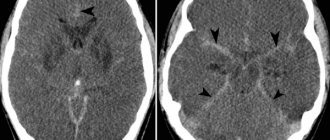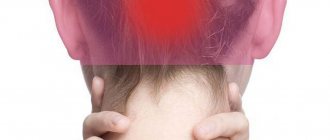- home
- Helpful information
- Mental illness
- Drug therapy for patients with dementia
Dementia is a disease associated with brain dysfunction. It is usually progressive and incurable. The reasons are still unknown. There is drug therapy that can slow down the progression of the disease. Its effectiveness depends on the accurate diagnosis, symptoms, and stage of the pathology.
Order a visit from a gerontologist
Experienced doctors. Treatment in a hospital or at home. 24-hour service in Moscow and the region. Professional, anonymous, safe.
Home care for people with dementia
Caring for older people with dementia is based on the constant presence of a caregiver next to the patient. Considering that a loved one is losing most life skills, the support of a caregiver is required throughout the day in all activities.
Care for mild dementia
The patient is helped to perform morning hygiene procedures, get dressed, and get himself in order. Food is prepared for him and he is fed 5 times a day. Correlate diet and medication schedule. Physiological functions are monitored. If the elderly person does not maintain control of the toilet, a diaper is put on him and changed when he is full.
If motor skills are preserved, the ward is taken for a walk. Fresh air stimulates the functioning of the whole body, filling the lungs with oxygen.
It is advisable to conduct classes on the development of cognitive abilities in the first half of the day. At this time, the brain is more active. The materials used for classes are:
- Crosswords;
- Board games;
- collections of exercises.
Physical exercise is also beneficial for the patient. It is recommended to do gymnastics in the morning, breathing exercises, and accustom the ward to Nordic walking.
Treatment of the disease should be under the supervision of a physician. Periodically, a psychiatrist is called to the patient’s home so that the doctor can assess the elderly person’s condition and make timely adjustments to the treatment regimen.
Care for severe dementia
When a patient with dementia loses the ability to move, it is necessary to care for him as for a bedridden patient. Much attention during care is paid to preventing the occurrence of bedsores. The patient's position is regularly changed: they are turned over on the right and left side, on the back, placing the limbs comfortably. They massage those places where the patient has been lying for a long time, avoiding tissue atrophy. The bedding is changed frequently, even if there are small areas of soiling.
For an elderly person, choose comfortable clothes without rough seams made from natural cotton. The lower part of the kit must be securely fastened so that the patient cannot tear off the diapers on his own. In an unconscious state, the patient can stain himself and the bed with the contents, scratch his skin, and cause an infection.
You may also be interested in the article: Proper care for bedridden patients
Food for an elderly person with dementia should be of a liquid consistency: problems arise with chewing and swallowing food. When feeding, the patient is seated, placing pillows under his back. For drinks, closed sippy cups are used. The food is served at a warm temperature. People with senile dementia will not be able to cool it down on their own. And cold dishes cause aversion in a seriously ill person.
Questions and answers
When does alcohol-related dementia begin to develop?
Dementia due to the abuse of alcoholic beverages develops under conditions of prolonged use of alcohol - 10-15 years. The condition is aggravated by vascular pathology and liver diseases.
If a person periodically forgets the names of his relatives in old age, is this developing dementia or simply senile forgetfulness?
This condition is typical for older people. If there are no additional signs of dementia (decreased intelligence and disturbances in the emotional-volitional sphere), there is no need to worry. It is advisable to consult a family doctor or general practitioner.
Tips for relatives of people with dementia
Caring for a loved one who suffers from dementia is hard work. Psychological burnout inevitably occurs. Watching your ward lose his mind every day has a negative impact on the condition of loved ones.
We recommend following expert advice when caring for an elderly person with dementia:
- Try to accept the disease and its manifestations in behavior. Remember that the patient’s negative statements about you, accusations of theft and deception are not his true thoughts and feelings, but symptoms of the disease.
- Create a warm emotional environment for the ward. You need him to be able to trust you. Then the seriously ill person will not experience anxiety and despair.
- Maintain a clear daily routine. A patient with dementia should develop a sleep-wake pattern to avoid confusion.
- Control your emotions, do not scream, no matter what actions the patient performs. Such reactions can often provoke him to run away from home.
- Do not demand a quick answer to a question from a sick person. He forgets the meaning of words and thinking occurs at a slow pace.
- Try to talk with the patient on different topics: this will help him maintain his speech. An elderly person remembers events of the past clearly; focus on this. In this way, you solve two problems: you support the patient in trying to remember information and evoke pleasant feelings in him. The elderly enjoy reminiscing about their childhood and youth.
- If you feel like you are on the verge of a breakdown, give yourself a social break: ask for help from loved ones, hire a nurse, find a good boarding house for an elderly person.
A patient with dementia is often placed in a boarding house for the elderly when it is not possible to care for him at home.
Diagnosis of the disease
Suspicion of dementia is a good reason to see a doctor. This pathology is dealt with by a therapist, a neuropsychologist, a neuropathologist, a psychiatrist and a specialist who deals with diseases of the elderly. The diagnosis is made after interviewing the patient’s relatives and the patient himself. Important information is:
- age;
- characteristic signs;
- frequency of symptoms;
- time of onset of pathology.
A comprehensive neurological examination using modern equipment allows us to determine where the foci of pathology are located. The diagnosis is finally made only when symptoms are observed for six months and intensify over time.
A number of psychological tests are carried out to assess cognitive function. They make it clear at what level of consciousness the patient is. During testing the following is established:
- degree of orientation in space;
- features of attention;
- volume of short-term and long-term memory;
- thought processes (abstract, logical);
- the presence or absence of hallucinations, illusions;
- ability to think critically and plan.
Caring for a patient with dementia in a boarding house
Boarding houses are divided into two types: public and private. People are admitted to public institutions based on referrals from social service centers. No special voucher is required for a private boarding house. The establishments provide similar services. Differences may relate to the quality and cost of service.
The advantages of a private boarding house are:
- small number of residents;
- modern rehabilitation equipment and technical equipment;
- personal care for seriously ill patients.
At home, care falls on the shoulders of one family member; in a boarding house, care services are provided by different employees. The staff not only have experience in caring for older people with chronic diseases, but also undergo regular training. A patient with dementia receives:
- medical care for illness;
- psychological assistance;
- hygiene care;
- fractional dietary meals.
Patients do not feel lonely. The elderly live surrounded by peers; leisure programs and hobby classes are organized for them.
You may also be interested in the article: How to choose a private facility for the elderly
Symptoms of insomnia
- Daily difficulty falling asleep;
- Poor sleep;
- Frequent awakenings;
- Early awakenings;
- Frequent disturbing dreams;
- Feeling anxious or restless when waking up;
- Difficulty falling back asleep;
- Lack of feeling of rest after sleep;
- Reduced sleep duration;
- Increased sensitivity and pain to any, even minor, irritants.
Elderly patients with insomnia experience anxiety, awaken mainly in the first hours of sleep and cannot adequately assess its duration.
Prevention of dementia
Eliminating the causes of dementia should begin at a young age.
- Quit smoking and alcohol. Abuse of bad habits causes cerebral infarctions and strokes.
- Play sports and exercise. Movement improves the exchange of oxygen in the blood, the cells receive constant fresh nutrition. Walking improves thinking and attention.
- Remove spicy, fatty foods with excess carbohydrates from the menu. Include fresh vegetables, fruits, nuts, cereals, fish and seafood in your diet.
- Avoid intoxication of the body. Do not choose work associated with hazardous production.
- Get tested regularly for blood sugar and cholesterol levels, and do an ultrasound of your internal organs.
- Train your intellect constantly: learn new information, a foreign language, a profession.
It is important to undergo a medical examination every year from a general practitioner, independently or from a labor organization.
Dementia of the young: myth or reality
Although dementia is most often diagnosed in older people, the disease is often found in younger people. At this age, it is very difficult to determine the moment when dementia begins to develop. Lack of timely assistance complicates the disease. Most often, dementia in young people is a consequence of pathology of the nervous system or brain.
Among the reasons are:
- traumatic brain injuries;
- dysfunction of the thyroid gland;
- infectious viral diseases;
- alcoholism.
Chronic alcohol abuse causes vitamin B1 deficiency. This leads to difficulty in perceiving new information and often provokes memory lapses the morning after the feast.
Signs of dementia in young people are associated with the stage of pathology, as well as the intensity of the disease. Each of the three stages has its own specific features:
- Early stage. The disease can remain undetected for a long time. The person continues to go to work, communicate with relatives and friends. Pathology can be suspected by unhealthy forgetfulness, periodic loss of orientation in space and time.
- Middle stage. Symptoms of the early stages of dementia become more acute and worse. Previously acquired household and professional knowledge and skills are lost, and there is no opportunity to acquire new ones. A young man sometimes forgets the names of his friends and does not remember the events that happened yesterday. If he often asks the same questions without remembering the answers he received, this is a reason to urgently consult a doctor. The patient begins to walk aimlessly around the house and cannot find himself in any activity. At this stage, he already needs help with self-care. One of the most unpleasant symptoms is fecal and urinary incontinence. In order for a person with dementia to continue to live a normal life, he requires round-the-clock care.
- Late stage. This is the most difficult stage in the development of the disease, during which the first signs of personality disintegration are observed, and previous symptoms worsen. The person becomes completely passive, apathetic, and needs constant care. Memory and thought processes cease to function; the patient often does not remember his name or how old he is. Orientation in space is completely lost, speech and motor activity are practically absent.
Who should I turn to for help?
The Ultramed Gerontology Clinic treats elderly people with various diseases. A psychotherapist treats insomnia in a medical setting. However, depending on the causes of the disease, intervention by other experts is possible.
In many cases, patients undergo an initial examination, which is carried out by a general practitioner, who then refers the client to the right specialist. The help of a psychologist is often effective.
If you need surgical treatment for insomnia, then we are ready to provide you with all the necessary help from highly qualified specialists with more than 20 years of experience.











